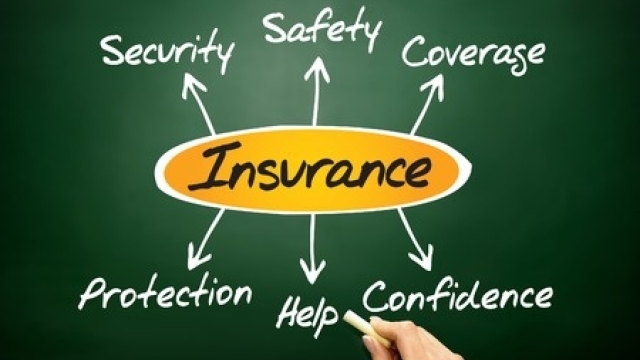As a small business owner, protecting your profits is essential for the longevity and success of your venture. One valuable tool in ensuring this protection is small business insurance. This comprehensive coverage offers a safety net that safeguards your business and its assets against unexpected challenges and risks. While many entrepreneurs focus on securing insurance for their personal lives, such as car or home insurance, it is equally crucial to have adequate coverage for your business. In this guide, we will delve into the world of small business insurance, exploring its importance, key types of coverage to consider, and tips on finding the best policies for your specific needs. So, let’s dive in and discover how acquiring the right insurance can provide peace of mind while safeguarding your profits.
Understanding Small Business Insurance
Small business insurance is a crucial aspect of running a successful enterprise. It provides protection and peace of mind for business owners, covering a range of risks and liabilities that can arise in day-to-day operations. One vital type of insurance is car insurance, which safeguards businesses against accidents or damages involving company-owned vehicles.
Small business insurance offers various coverages tailored to meet the unique needs of each organization. It typically includes property insurance, which protects against damage or loss of business property such as buildings, equipment, and inventory. Liability insurance is another essential component, covering legal costs and damages associated with accidents, injuries, or property damage caused by the business or its employees.
In particular, car insurance is essential if your business relies on vehicles for operations. It serves as a financial safety net, ensuring that any costs resulting from accidents, theft, or vandalism involving company cars are covered. Car insurance can also provide liability coverage, protecting your business from potential lawsuits if an employee causes an accident while driving for work purposes.
Understanding the intricacies of small business insurance is crucial for every entrepreneur. By adequately assessing the risks associated with your business and obtaining the appropriate coverage, you can protect your profits and ensure the smooth operation of your company. Stay tuned for the upcoming sections where we will explore the types of insurance coverage available specifically for small businesses.
Choosing the Right Coverage
When it comes to small business insurance, choosing the right coverage is crucial. It ensures that your business is protected against unexpected risks and potential financial losses. With so many options available, it’s important to carefully consider your specific needs and circumstances. Here are some key factors to keep in mind when selecting the right coverage for your small business.
Firstly, assess the nature of your business and the potential risks it faces. Consider the specific industry you operate in and identify any unique exposures that may require specialized coverage. For example, if you own a restaurant, you may need coverage for food spoilage or liquor liability. Understanding your business’s vulnerabilities will help you tailor your insurance plan accordingly.
Secondly, review the legal requirements for your business. Some states or industries have mandatory insurance policies, such as workers’ compensation or commercial auto insurance. Be sure to familiarize yourself with these obligations to ensure compliance and avoid potential penalties. Additionally, consider any contractual requirements you may have with clients or vendors that dictate the type or amount of insurance coverage you need.
Lastly, evaluate your budget and risk tolerance. Insurance premiums can vary based on coverage limits, deductibles, and additional features. Assess your financial capabilities and determine how much you are willing to spend on insurance. Consider the potential financial impact of a loss and strike a balance between adequate coverage and affordability. Remember, it’s always better to be safe than sorry.
By carefully considering these factors and consulting with insurance professionals, you can make an informed decision when choosing the right coverage for your small business. Taking the time to understand your unique risks and obligations will give you peace of mind knowing that your profits are protected against unforeseen events.
Maximizing Protection for Your Profits
Now that you understand the importance of small business insurance, let’s explore how you can maximize protection for your profits.
- Condo Insurance South Carolina
-
Evaluate your insurance needs: Begin by assessing the specific risks your business faces. Do you operate a fleet of vehicles? If so, consider obtaining car insurance to protect against accidents and damage. Additionally, analyze other potential liabilities unique to your industry or location. This evaluation will help you identify the types of insurance coverage needed to safeguard your business.
-
Consult with an insurance professional: To ensure adequate protection, seek guidance from an experienced insurance professional. They can help you navigate the complexities of small business insurance and tailor coverage to suit your specific requirements. An expert will provide valuable insights into the policies available, explain the terms and conditions, and help you make informed decisions about your coverage choices.

-
Regularly review and update your policies: As your business evolves, it’s crucial to reassess your insurance needs periodically. Changes in operations, expansion into new markets, or the introduction of new products or services may require adjustments to your coverage. By staying proactive and regularly reviewing your policies, you can ensure that your insurance protection aligns with your current business situation and remains effective in mitigating potential risks.
Remember, small business insurance is not a one-and-done endeavor. It requires ongoing attention and adaptation to adequately safeguard your profits. By evaluating your needs, seeking professional advice, and regularly reviewing and updating your policies, you can maximize protection for your business and ensure its long-term success.
